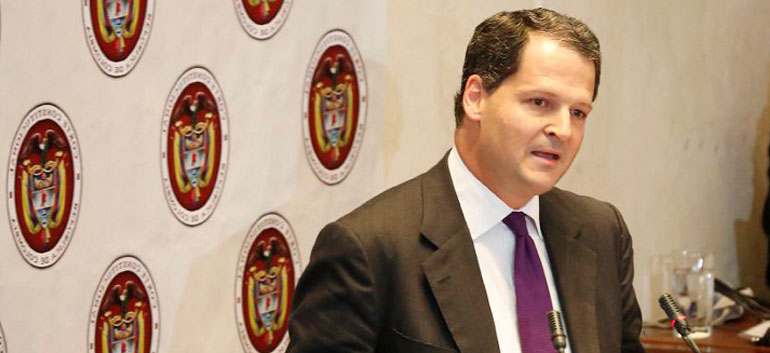Colombia’s high commissioner for peace said Tuesday that victims’ rights should be central to the ongoing peace negotiations between the government and the FARC rebel group.
Commissioner Sergio Jaramillo, a member of the government’s delegation to the Cuba negotiations, stated that peace between the Colombian government and the FARC will be impossible if victims of the country’s long-standing armed conflict are not properly compensated as part of a potential agreement.
“Since 2012, we have insisted that there is no possibility of reaching a peace agreement that does not include the victims,” said Jaramillo, who also stood firmly by the peace process.
“We are in Havana to find an end to the conflict and to ensure that there are no more people affected by the violence, as well as to guarantee [victims’] rights when the conflict is over,” he said.
The statement was made during the launch of the National Day of Remembrance and Solidarity with Victims, scheduled for April 9.
MORE: What do FARC victims think of Colombia’s peace talks?
According to Jaramillo, Colombia’s Congress is preparing a session that would allow representatives to hear directly from victims of the armed conflict. The special session will supposedly take place before negotiators in Havana begin discussions on the fourth item of the negotiating agenda, which revolves around victims of Colombia’s 50-year armed conflict.
In regards to the congressional session, Jaramillo said, “Peace is possible if we achieve a consensus within society about what our goals are, how we imagine a peaceful Colombia, and how we imagine the victims a post-conflict scenario. The first agreement to emerge should be built on the rights of the victims.”
MORE: FARC ‘optimistic’ about peace talks
Negotiators are currently discussing the subject of illicit drugs, the third of six items on the negotiating agenda between the government and the rebels.
The two factions began discussing this point in late 2013 after reaching historic deal was reached on the subject of political participation.
FARC negotiators have been engaged in bilateral peace talks with the Colombian government in Havana, Cuba, since November 2012. According to the FARC’s Central Command, these talks offer “the only viable, civilized and humane alternative to put an end to this lengthy confrontation.”
The FARC, which has been fighting the Colombian state since forming in 1964, has also repeatedly called for a formal acknowledgement of victims. In particular, FARC negotiators have advocated for the formation of a “truth commission,” along the lines of the investigative bodies established in post-Apartheid South Africa, a proposal the government has indicated it will only consider following a broader peace agreement.
Since the start of Colombia’s armed conflict, millions of bystanders have fallen victim to violence perpetrated by rebels, the Colombian military and state-aligned paramilitary groups.


